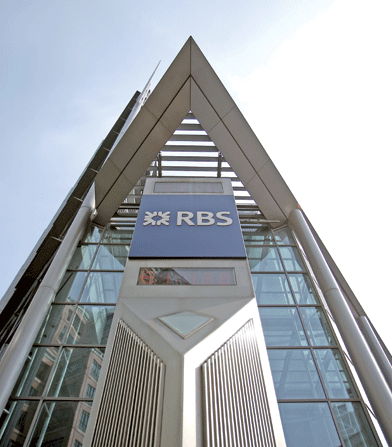RBS report blames bank management, industry regulators
Updated: 2011-12-13 07:40
(China Daily)
|
|||||||||
|
|
LONDON - Royal Bank of Scotland Group PLC and UK regulators were heavily criticized by the Financial Services Authority's (FSA) long-awaited report into the near collapse of RBS in 2008 following its takeover of ABN Amro Holding NV.
The bank relied too much on short-term wholesale funding, a weakness that was missed by the UK banking regulator, the bank regulators said in a report on its website. The watchdog listed seven reasons for the bank's failure, including uncertainties over the quality of the lender's assets and lack of capital.
RBS reported a 24.1 billion pound ($37 billion) loss for 2008, the largest in UK corporate history, and required a 45.5-billion-pound taxpayer rescue, the world's biggest banking bailout, after the acquisition. The FSA came under pressure to publish the probe into RBS finances after it cleared former RBS Chief Executive Officer Fred Goodwin and others of wrongdoing.
"The most important thing here is the failings are down to a whole group of people, it's down to management, it's down to investors, it's down to regulators, all of whom could have had a say in putting a stop to this," said Christopher Wheeler, an analyst at Mediobanca SpA in London.
Goodwin pushed through the world's biggest bank takeover, the 72 billion euro ($96 billion) purchase of Amsterdam-based ABN Amro with partners Banco Santander SA of Spain and Belgium's Fortis NV, even after global money markets froze in 2007. The acquisition saddled RBS with bad debt and depleted its cash reserves.
The FSA "identified a risk created by the perceived dominance of" Goodwin as CEO as early as 2003, the report said, adding that the bank's chief had developed a "challenging management culture".
"Taxpayers should never have had to rescue RBS," Philip Hampton, the bank's chairman, said in an e-mailed statement. "The FSA's views are an important contribution to the debate on how banks should be managed and regulated in the future."
The report blamed RBS' collapse on a liquidity run, where lenders to the bank became increasingly unwilling to roll over their funding commitments. That, in turn, had its roots in uncertainty about whether the bank had sufficient capital to absorb losses.
"There was insufficient focus on the core prudential issues of capital and liquidity, and inadequate attention given to key business risks and asset quality issues," according to the report.
The lack of confidence saw the bank lose a total of 19 billion pounds in deposits between August and October in 2008.
RBS' capital ratio in 2007 would have equated to 1.97 percent under more rigorous capital rules now in force, the study estimates. That figure is less than a quarter of the amount required now.
The FSA criticized RBS' decision to finance the ABN Amro purchase primarily though debt rather than equity. RBS paid 4.3 billion euros in stock and 22.6 billion euros in cash to ABN Amro shareholders, with the majority of the cash funded by debt, 12.3 billion euros of which matured in under a year, the FSA said.
'Important lesson'
RBS had one of the "greatest dependencies" on short-term wholesale markets, and in particular overnight funds, the FSA said. That left it more vulnerable than its peers to even short periods of market stress.
This weakness was exacerbated following the bank's purchase of ABN Amro, as it became even more reliant on the short-term funding as a consequence, the report said.
The report said the FSA moved too late in April 2008 to force RBS to raise 12 billion pounds in capital, saying the regulator's supervision of reserves was mainly reactive. The bank needed as much as 166 billion pounds in additional "high-quality unencumbered liquid assets", the FSA said.
"From late 2007 onwards, the FSA was increasingly developing and applying a more rigorous capital regime, and it pushed RBS to make a large rights issue in April 2008," the FSA report said. "In retrospect, however, the changes in the FSA's capital regime came too late to prevent the developing crisis."
The FSA operated a flawed supervisory approach which failed adequately to challenge the judgment and risk assessments of the management of RBS, said Adair Turner, the FSA's chairman.
"This approach reflected widely held, but mistaken, assumptions about the stability of financial systems and existed against a backdrop of political pressures for a 'light touch' regulatory regime," Turner said in the report.
The study could lead to more oversight for bank mergers to "reflect the fact that major acquisitions by banks pose potential social risks which are not present in the case of contested takeovers by non-banks", according to the report.
The UK Treasury called the report an "important part of learning lessons from the financial crisis and gaining further understanding of its causes", in an e-mailed statement.
Bloomberg News












